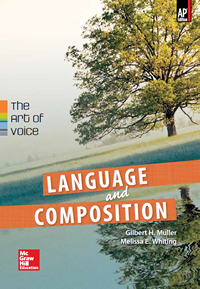
Language and Composition: The Art of Voice (Muller and Whiting)Chapter 11: Nature and the Environment: How Do We Relate to the Natural World?Chapter OverviewAs you read the essays in this chapter, consider the following questions:
We are at a point in the history of civilization where consciousness of our fragile relationship with nature and the environment is high. Even as you spend an hour reading a few of the essays in this chapter, it is estimated that we are losing 3,000 acres of rain forest around the world and four species of plants or animals. From pollution, to the population explosion, to the depletion of the ozone layer, to global climate change, we seem to be confronted with ecological catastrophe. Nevertheless, as Rachel Carson reminds us, we have “an obligation to endure,” to survive potential natural catastrophes by understanding and managing our relationship with the natural world. Ecology, or the study of nature and the environment, as many of the essayists in this chapter attest, involves us in the conservation of the earth. It moves us to suppress our rapacious destruction of the planet. Clearly, the biological stability of the planet is increasingly precarious. More plants, insects, birds, and animals became extinct in the 20th century than in any era since the Cretaceous catastrophe more than 65 million years ago that led to the extinction of the dinosaurs. Within this ecological context, writers like Carson become our literary conscience, reminding us of how easily natural processes can break down unless we insist on a degree of ecological economy. Of course, any modification of human behavior in an effort to conserve nature is a complex matter. To save the spotted owl in the Pacific Northwest, we must sacrifice the jobs of people in the timber industry. To reduce pollution, we must forsake gas and oil for alternate energy sources that are costly to develop. To reduce the waste stream, we must shift from a consumption to a conservation ethos. The ecological debate is complicated, but it is clear that the preservation of the myriad life cycles on earth is crucial, for we, too, could become an endangered species. The language of nature is as enigmatic as the sounds of dolphins and whales communicating with their respective species. Writers like Barry Lopez and Rachel Carson and the vision expressed in the letter of Chief Seattle help us decipher the language of our environment. These writers encourage us to converse with nature, learn from it, and even revere it. All of us are guests on this planet; the natural world is our host. If we do not protect the earth, how can we guarantee the survival of civilization? |  |















